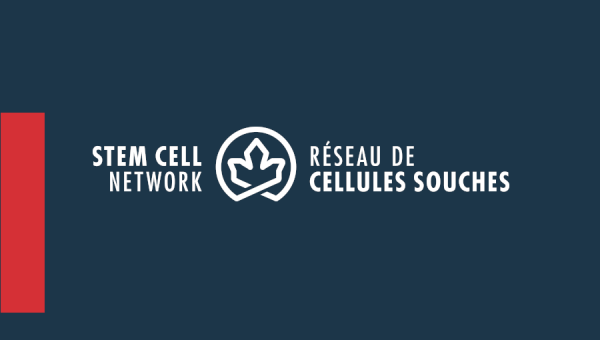
Regenerative medicine provides avenue to study brain and muscular disease

Dr. Jo Anne Stratton

Dr. Natasha Chang
Two MRM-led projects included among pan-Canadian funding announced by the Stem Cell Network
Initiatives led by McGill University professors Dr. Natasha Chang and Dr. Jo Anne Stratton are among the latest round of projects selected for funding by the Stem Cell Network (SCN) to support stem cell and regenerative medicine research projects that will help to deliver improved health for Canadians and will contribute to our national economic recovery. Dr. Chang’s project proposes targeting muscle stem cells to enhance endogenous repair in Duchenne muscular dystrophy, while Dr. Stratton’s involves using stem cells to develop a tool for researchers to better study the diseased and healthy brain.
The two projects will be funded as part of the SCN’s second round of funding, through The Innovation Research Program for Early Career Investigator stream, which will provide more than $1M to support seven early career investigators (within the first five years of an initial academic appointment) to develop a stem cell research program with a regenerative medicine focus. The announcement was made by Mr. Will Amos, Parliamentary Secretary to the Minister of Innovation, Science and Industry (Science) during the Stem Cell Network’s annual research conference, the Till & McCulloch Meetings, held virtually for this first time this year.
Potential new avenue to treat Duchenne muscular dystrophy
Duchenne muscular dystrophy (DMD) is a devastating and debilitating degenerative muscular disease affecting 1 in 3,500 male births worldwide. DMD is progressive and fatal; accumulated weakening of the muscle tissue leads to an inability to walk and eventual loss of life due to respiratory and cardiac failure. There remains no effective cure for DMD.
Recent studies have shown that muscle stem cells, which are adult stem cells responsible for muscle repair, are also affected in DMD. DMD muscle stem cells do not function as normal healthy muscle stem cells and their impairment plays a contributing role in disease progression. Current therapeutic strategies for muscular dystrophy do not address the deficiencies in muscle stem cell function.
“In our project we describe a novel approach to target muscle stem cells to mitigate the disease,” explains Dr. Chang, an Assistant Professor in the Department of Biochemistry who specializes in muscle stem cell biology and muscle stem cell contributions to muscle pathologies. “We have found that a group of small molecule compounds known to have anti-tumorigenic properties that protect against muscle wasting have the ability to improve muscle differentiation, the process whereby muscle stem cells make mature muscle cells. This study investigates the use of these compounds to boost the regenerative capacity of muscle stem cells. We propose that enhancing muscle repair through the restoration of muscle stem cell function will improve muscle quality and strength in DMD.”
The findings from these studies will provide proof-of-concept validation to further develop these compounds for clinical use in DMD patients. This project is supported by a multi-disciplinary team of investigators including Dr. Jerry Pelletier (chemical biology), Dr. Imed Gallouzi (muscle wasting), as well as Dr. Gerald Pfeffer (neuromuscular disease). The project is also supported by partnership contributions from McGill University, the McGill Regenerative Medicine Network, Muscular Dystrophy Canada, and Aurora Scientific Inc.
Using stem cells to better understand the brain
The project led by Dr. Stratton, an Assistant Professor in the Department of Neurology and Neurosurgery, involves the reprogramming of human cells made from pluripotent stem cells (iPSCs) to make brain cells, that are notoriously difficult to access and study. Known as an ependymal cell, this cell type is the brain’s inner most barrier cell that lines the entire network of cavities in the brain.
Ependymal cells regulate cerebrospinal fluid (CSF) circulation, the brain fluid that can become dysregulated in neurological conditions and diseases.
“The degree of ependymal cell abnormalities and how these cells contribute to CSF dysregulation is largely unknown due to a lack of good models,” explains Dr. Stratton. “Therefore, we aim to develop a robust method for generating ependymal cell cultures from iPSCs that would not only greatly benefit my research program but would also have a wider impact on the research community. In the process of developing this translational method, we will gain a greater understanding of the developmental timelines of human ependymal cells and apply this knowledge to better inform their regenerative potential and how they may become compromised in disease.”
Dr. Stratton notes that this system can be used to understand how genes and environment interact in diseases impacting ependymal cells or impacted by ependymal cells – an accomplishment in both the fields of stem cell biology and ependymal cell biology.
In addition to Dr. Stratton, an ependymal cell biologist, the project team includes iPSC and glia experts, Drs Thomas Durcan and Luke Healy. The McGill Regenerative Medicine Network is also an instrumental partner for this project, supporting trainee stipend costs and providing network resources.
The MRM Network will support these two projects by funding half-studentships of a value of $10,000 for each of them.
Congratulations Dr. Chang and Dr. Stratton!
Source: Health e-News, see their story here.
